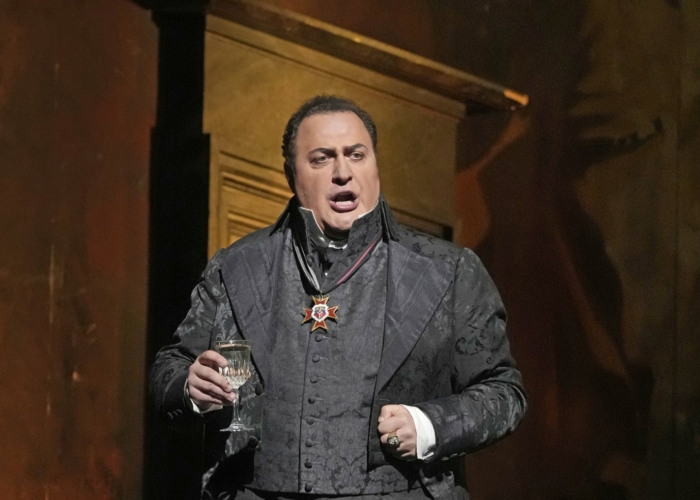
Review
|
13.12.2021
Tosca – New York 2021
“Gagnidze held his own as Scarpia, conveying the character’s malevolence but also his aristocratic disdain.”
Anthony Tommasini, The New York Times
“The Scarpia was Georgian baritone George Gagnidze, returning in a role he’s sung nearly thirty times at the Met. Gagnidze was the production’s reliable anchor, offering little in the way of surprises, but always fully committed to the character, singing it with the perfect combination of snarl, beauty and finesse.”
Steven Jude Tietjen, Opera News
“Gagnidze, a newcomer to this production, took over the December Scarpias when Evgeny Nikitin canceled them just ahead of the dress rehearsal, and he gave a well-voiced, well-practiced account of the role.”
Patrick Dillon, Opera Canada
“Replacing an ailing Yevgeny Nikitin, Gagnidze was a fine Scarpia, imposing but not hammy. There was an inner life and drive to his singing as well, and this showed in contrast in his scenes with Jagde. While the tenor continued to outline his part, even in the crucial Act 2 confrontation, Gagnidze embodied the character’s sociopathic assurance. Scarpia sees Tosca as a social inferior that he can manipulate and dominate, and Gagnidze carried off that elitist disdain in his singing, with a bit of bravado and self-involvement.”
George Grella, New York Classical Review
“As a late replacement for Evgeny Nikitin, George Gagnidze holds more than his own as the voluptuary sadist Scarpia, the part he had already been slated to take on in the MET’s January 2022 run of the opera. With his burly bass-baritone and hefty stage presence, he most effectively conveys the villain’s maniacal malevolence as well as his aristocratic arrogance.”
Susan Stempleski, Classical Source
“An Imposing Scarpia
The role of Scarpia that evening was played by George Gagnidze, covering for Evgeny Nikitin. From his entrance amidst the churchgoers he struck an imposing figure, swiftly questioning the sacristan while backed by croaking bassoons, before coldly turning his sights on Tosca. This false affection was not heard so much vocally, but was seen through Gagnidze’s gestures and bearing; as he set Tosca off to find Cavaradossi, he began to reveal his possessive side as he hugged her, kissed her hand, then clutched at her scarf before finally letting her go. This emerging malice was explored in greater detail in his rendition of the “Te Deum,” which ran the gamut from hushed scheming to a sinister outpouring as the chorus gathered and built a vocal and visible camouflage.
His lines rang rich with hostility as he opened Act two with “Ha piu forte sapore,” in fine contrast with the relaxed and stately feel of the orchestra as Scarpia laid out his desires. While he held the power through most of the act, he made nice use of oilier tones as he propositioned Tosca, and his aggression built towards his fatal stabbing.”
Logan Martell, OperaWire
“Baritone bass George Gagnidze replaced Russia’s Evgeny Nikitin at the last minute, who canceled due to illness. Gagnidze played a solid Scarpia with a great stage presence, very adept at covering the character’s evil with an aristocratic nonchalance that added credibility to the role. (…) Ganidge fulfilled his musical duties without problem and on the whole did not pale in comparison.”
Carlos Javier López Sánchez, Operaworld.es
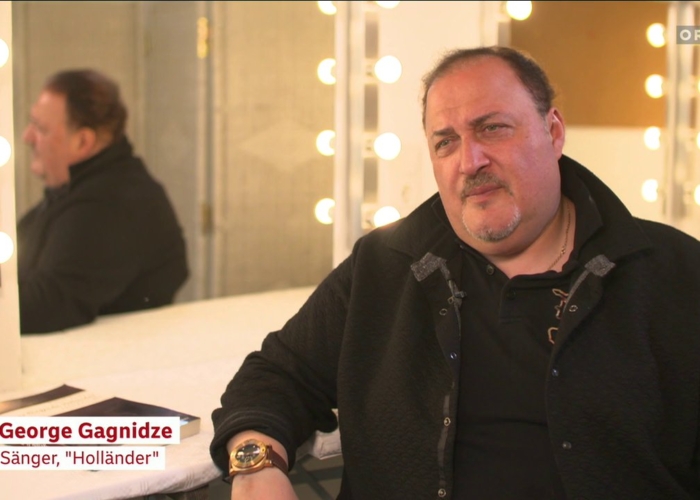
Interview
|
04.07.2025
Interview for ORF TV
In the lead-up to the premiere of Der fliegende Holländer at the Oper im Steinbruch Festival, George Gagnidze spoke with ORF TV about his role and the production in St. Margarethen. The interview, along with rehearsal footage, can be viewed here:
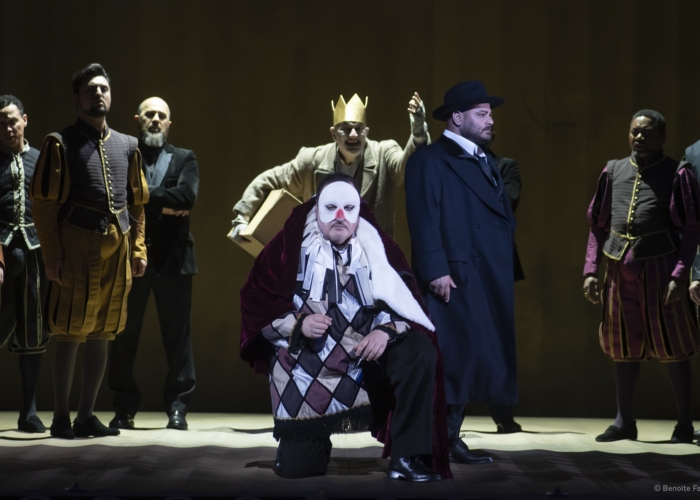
Interview
|
07.06.2025
Première Loge Interview
George Gagnidze recently spoke with Première Loge about his deep connection to Verdi and Rigoletto, the role he is currently singing at the Opéra national de Paris. The interview touches on his artistic journey, future projects, and his interpretation of one of opera’s most iconic characters.
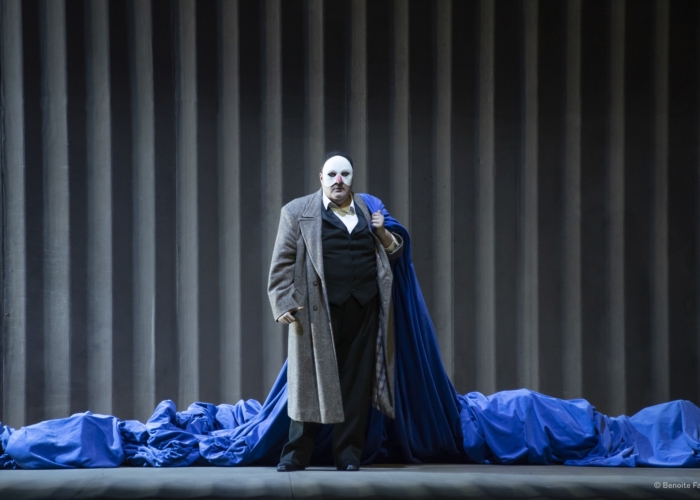
Review
|
06.06.2025
Press review “Rigoletto” in Paris, May/June 2025
“George Gagnidze, a veteran of his signature role, which he embodies masterfully with exemplary intelligence, (...) throws himself admirably into this demanding part: ... showing no noticeable signs of age ... he often reaches moments of true emotion, culminating in a faultless and particularly poignant finale.” François Lehel, Opéra
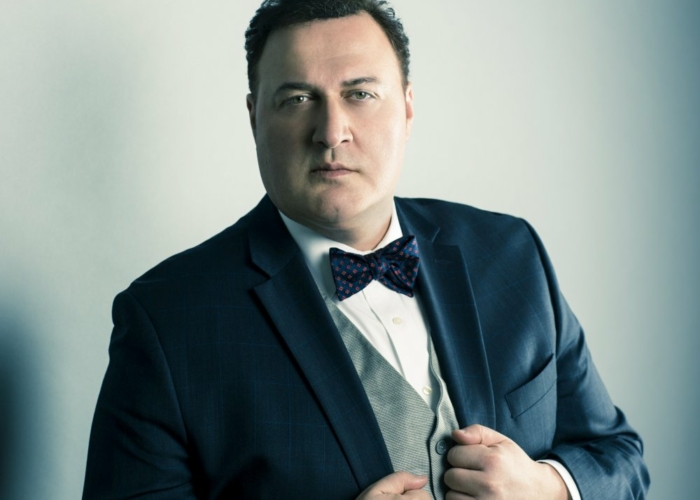
Interview
|
01.04.2025
Interview with Appreciate Opera
George Gagnidze was interviewed by Alkis Karmpaliotis for the US publication Appreciate Opera. Below you will find a preview of the feature. To read the whole interview, you may click HERE.
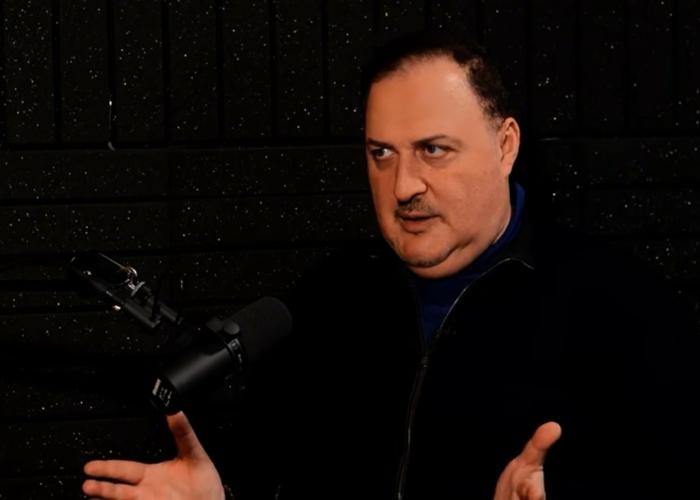
Interview
|
20.03.2025
Interview for YouTube channel Kontextus
While in Budapest, George Gagnidze had a chat with the Hungarian YouTube channel Kontextus about his career, singing Verdi and Macbeth at the Hungarian State Opera:




